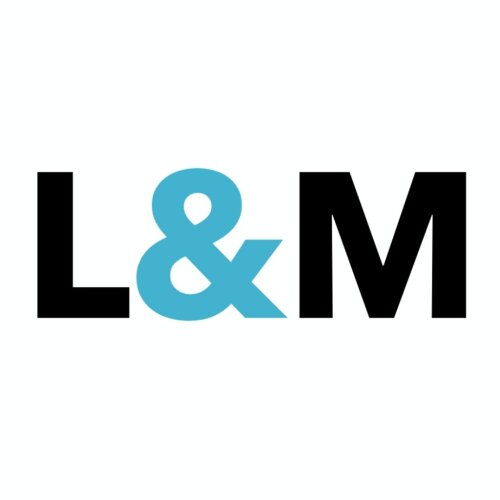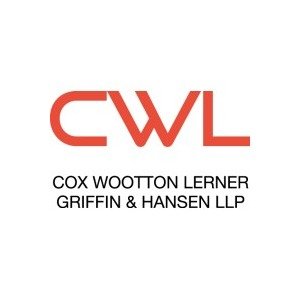Best Intellectual Property Lawyers in San Francisco
Share your needs with us, get contacted by law firms.
Free. Takes 2 min.
List of the best lawyers in San Francisco, United States
United States Intellectual Property Legal Questions answered by Lawyers
Browse our 1 legal question about Intellectual Property in United States and read the lawyer answers, or ask your own questions for free.
- Intellectual property
- Someone in india is using my children's photos on a court case that I have nothing to do with
-
Lawyer answer by Ahire & Associates
You can file a complaint with the cyber cell of the police department if the photos were obtained or used in a manner that violates privacy laws. The Information Technology (IT) Act, 2000, includes provisions for the protection of privacy.Please...
Read full answer
About Intellectual Property Law in San Francisco, United States
Intellectual Property (IP) law in San Francisco covers a wide range of legal rights and protections designed to safeguard the creations of the mind. This includes inventions, literary and artistic works, designs, symbols, and names used in commerce. Situated in the heart of Silicon Valley, San Francisco is a hub for technological innovation, making IP law particularly significant for entrepreneurs, startups, and established companies. The city is home to a vibrant legal community with experts specializing in various IP areas, such as patents, trademarks, copyrights, and trade secrets.
Why You May Need a Lawyer
There are several situations where consulting a lawyer specializing in intellectual property may be crucial:
- When developing a new invention, securing a patent can prevent unauthorized use or duplication.
- Registering a trademark can protect your brand's unique identity, preventing others from using similar names or logos.
- If you’re an artist or author, copyright protection helps maintain control over how your works are reproduced and distributed.
- Companies may need assistance in protecting trade secrets to ensure competitive advantage.
- Enforcing your rights against infringement and defending against claims of infringement are critical legal scenarios that require expert help.
- Licensing agreements can be complex, requiring legal oversight to ensure fair terms.
Local Laws Overview
While federal law governs much of IP in the United States, San Francisco has particular regulations and practices that impact IP proceedings:
- The local courts often handle high volumes of IP litigation, particularly concerning technology and biotechnology industries.
- San Francisco's legal community is dense with IP specialists, providing a rich network for collaboration and expertise.
- The proximity to major tech companies in Silicon Valley influences the focus on patents and technology-related IP rights.
- The California Uniform Trade Secrets Act (CUTSA) is a key state legislation relevant to IP protection and enforcement.
Frequently Asked Questions
What is the difference between a patent and a copyright?
A patent protects inventions and new processes, while a copyright safeguards original works of authorship such as literature, music, and art.
How long does it take to get a trademark registered?
Trademark registration can take from several months to over a year, depending on the complexity of the application and any objections or oppositions encountered during the process.
Can I protect an idea with a patent?
No, patents do not protect ideas. They protect inventions or processes that are novel, non-obvious, and useful.
What should I do if someone is infringing on my IP?
It is advisable to consult an IP attorney immediately to assess the situation and determine the best course of action, which may include cease and desist letters or litigation.
Do I need to register my copyright?
While copyright protection is automatic upon creation, registering it can be beneficial for enforcing rights and providing legal proof of ownership.
What are trade secrets?
Trade secrets are business practices or information that are not known to the public, provide economic benefit, and are subject to reasonable efforts to maintain secrecy.
What's the first step in obtaining a patent in San Francisco?
The first step is to perform a patent search to ensure your invention is unique. Then, you’d file a patent application with the United States Patent and Trademark Office (USPTO).
How can I defend against IP theft?
Establish comprehensive IP management strategies, include IP clauses in contracts, and monitor your IP assets continually. Legal actions like cease and desist notices or lawsuits may follow if necessary.
Are there special IP considerations for technology startups?
Yes, technology startups should pay particular attention to patents, software copyrights, and securing trademarks early to safeguard their products and brand identity.
What rights do I have if my work is copyrighted?
You have the right to reproduce, distribute, and display your work, and to create derivative works. These rights help control how your work is used.
Additional Resources
For those seeking further information or assistance, the following resources may be useful:
- United States Patent and Trademark Office (USPTO)
- California Secretary of State's Office for state-level trademark registration
- San Francisco Intellectual Property Law Association (SFIPLA)
- Bay Area Legal Aid for general legal assistance
- Local Law Schools' IP law clinics offering pro bono help
Next Steps
If you believe you need legal assistance in IP law, consider following these steps:
- Identify the type of IP protection or issue you need help with (patents, trademarks, copyrights, etc.).
- Research and connect with a qualified IP attorney in San Francisco who specializes in your area of interest.
- Prepare all relevant documentation and evidence of creation, use, and infringement relating to your IP matter.
- Schedule a consultation to discuss your legal needs and possible strategies.
- Follow up on the attorney's guidance, and keep informed on IP laws that may affect your case or future plans.
Lawzana helps you find the best lawyers and law firms in San Francisco through a curated and pre-screened list of qualified legal professionals. Our platform offers rankings and detailed profiles of attorneys and law firms, allowing you to compare based on practice areas, including Intellectual Property, experience, and client feedback.
Each profile includes a description of the firm's areas of practice, client reviews, team members and partners, year of establishment, spoken languages, office locations, contact information, social media presence, and any published articles or resources. Most firms on our platform speak English and are experienced in both local and international legal matters.
Get a quote from top-rated law firms in San Francisco, United States — quickly, securely, and without unnecessary hassle.
Disclaimer:
The information provided on this page is for general informational purposes only and does not constitute legal advice. While we strive to ensure the accuracy and relevance of the content, legal information may change over time, and interpretations of the law can vary. You should always consult with a qualified legal professional for advice specific to your situation.
We disclaim all liability for actions taken or not taken based on the content of this page. If you believe any information is incorrect or outdated, please contact us, and we will review and update it where appropriate.
Browse intellectual property law firms by service in San Francisco, United States
San Francisco, United States Attorneys in related practice areas.
















